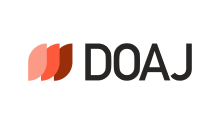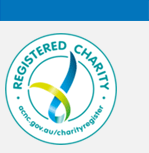Author Credentials
- Doctor of Philosophy Candidate, Queensland University of Technology (Commenced July 2021), In progress
- Clinical Health Informatician Australasia (CHIA), Australian Institute of Digital Health , 2020
- Master of Healthcare Management, University of New South Wales, 2020
- Post Graduate Diploma in Occupational Health and Safety, Queensland University of Technology, 2015
- Bachelor of Nursing, Queensland University of Technology, 2011
Abstract
Aim: To investigate self-reported health literacy levels, learning preferences and knowledge resource needs of Australian elective surgery patients.
Background: Surgery contributes significantly to global health care, but surgical waitlists, cancellations and delay remain major challenges for health care systems. Pre-operative preparation and patient education about the surgical journey are essential to reducing these disruptions. Unfortunately, preparation and education are limited by short timeframes and one-size-fitsall approaches. Limited information exists about Australian surgical patients’ health literacy levels, learning preferences and knowledge resource needs.
Design and methods: This cross-sectional waiting room survey investigated patient health literacy, preferred education mode and learning styles among elective surgery patients. Data were collected from patients using existing validated questionnaires and open-text questions. Quantitative data were analysed descriptively, and qualitative data were themed using an iterative open-coding approach. The study is reported using the EQUATOR (Enhancing the QUAlity and Transparency Of health Research) guidelines.
Results: The study had 100 participants, 68 living in metropolitan areas, 93 having access to a smartphone and 62 possessing adequate health literacy levels. The top surgical challenge was understanding preparation and recovery instructions. Most participants were visual learners preferring face-to-face, digital formats, booklets or leaflets to receive educational information. Half of the participants sought additional surgical preparation information; of those, 60 per cent used the internet.
Conclusion: This study found that many Australian surgical patients have limited health literacy, prefer visual learning and seek information outside of hospital resources. These findings suggest that clinicians should engage with patients to tailor education, provide different forms of learning materials and explore digital formats for education. Patient or public contribution: This study was designed using insights from a patient representative during intervention development.
Recommended Citation
Williams, Cory J.; Duff, Jed; and Tannagan, Chloe
(2024)
"Australian elective surgery patients’ pre-operative preparation, health literacy, learning preferences and knowledge resource needs: A cross-sectional survey,"
Journal of Perioperative Nursing: Vol. 37
:
Iss.
1
, Article 1.
Available at: https://doi.org/10.26550/2209-1092.1283
Creative Commons License

This work is licensed under a Creative Commons Attribution 4.0 License.


